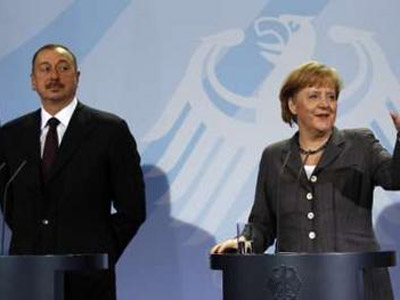The consequences of resumption of hostilities in Nagorno-Karabakh can be unpredictable in terms of security in Europe. Nevertheless, the international community — and especially the European Union — keeps magnanimously silent, since the instigator of the war in this case is Azerbaijan — a supplier of oil and an important partner in the construction of the Nabucco pipeline through which Europe is supposed to transport oil and natural gas, writes German daily Frankfurter Rundschau.
There is a danger that Turkey could be dragged into this conflict. Furthermore, the destabilization in the region can be used by Islamist forces to mobilize their own supporters. Though Muslim, Azerbaijan has a long secular tradition; the situation in the North Caucasus shows how quickly such a region can become a base for terrorist cells.
The struggle over Nagorno-Karabakh — along with the conflict over Georgia’s breakaway provinces of South Ossetia and Abkhazia — is another example of how unresolved territorial disputes impede democratic development in the region. Azerbaijan’s autocratic president Ilham Aliyev, who inherited the post from his father in 2003, is willing to use this conflict in order to divert public attention from domestic issues, as well as to retain his own power.
Azerbaijan is moving further and further away from becoming a full-fledged democracy. The EU is partly to blame. For too long, it focused on such topics as energy and economic cooperation. As a result, Aliyev and his clique have managed to consolidate their positions and climb up on a pedestal, and now they, looking down from above, believe they can ignore the international community’s criticism.
In any cooperation with states, there shouldn’t be a compromise on issues of human rights, said German Chancellor Angela Merkel recently, referring to deposed dictators. In accordance with these remarks, Brussels and Berlin should evaluate and ponder their actions in the case of Azerbaijan.
 Epress.am News from Armenia
Epress.am News from Armenia

